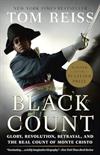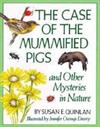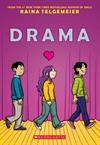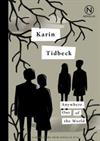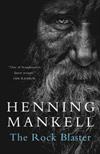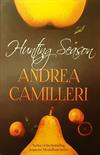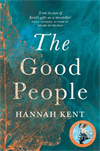Howards End
by Edward Morgan Forster | Literature & Fiction | This book has not been rated.
ISBN: 014018080X Global Overview for this book
ISBN: 014018080X Global Overview for this book
1 journaler for this copy...
This was a lucky find in a charity shop; the first choice of the Storyhouse book group in 2022
(18/01/22) *Includes some spoilers* I’ve not read a classic for a while, and would not have for the foreseeable but for this book group choice. I tell a lie, I am struggling through a Proust, but that’s a different matter!
This is set in a moneyed Edwardian England of country houses, servants, manners, giddy whirls of relationships, class distinctions, and all the familiar features of an older era. The Miss Schlegels (sisters Margaret/Meg & Helen) and the Wilcoxes could easily fit into a Bronte or Austen novel IMO. But there are some discordant notes from the early 20th; discussions about money, business & socialism/social justice, the [relative] freedoms enjoyed by single women. The British Empire features as a backdrop, but not front-and-centre as in Forster’s more famous novel, A Passage to India. I will not try to unpick the complicated plot here. Suffice to say that Howards End, the beloved family home of Ruth, the first Mrs Wilcox, features heavily from beginning to end. The house is both a metaphor for life and connections we make, and the quiet witness of several key events in the story, from a broken-off engagement to an unexpected death.
And so, the “Only connect …” epigraph on the title page, I looked this up in the dictionary; a short quotation or saying at the beginning of a book or chapter, intended to suggest its theme. Well who knew? I offer this description from the introduction to my Penguin Twentieth Century Classic edition; ‘… relationships, and the possibility of reconciliation, between certain pairs of opposites: the prose and the passion, the seen and the unseen, the practical mind and the intellectual, the outer life and the inner.” I couldn't put it better myself. The first appearance of the full phrase, "Only connect the prose and the passion, and both will be exalted" is not until page 188 by which time we know that Meg is determined to bring the passion of her Bohemian life to the buttoned-up prose (prosaic) of Henry's [modern] business world of pragmatism, production, motor cars, and anger.
One of the key moments in the book, Helen seducing poor Leonard Bast (I think it's that way around) caused some debate at the time of publication in 1910, including censure from Forster's mother; and it didn't feel very likely to me, even with my C21st sensibilities. Forster wanted something that would be surprising enough to shock Margaret, and the reader. I was also surprised at the rush of events after the pregnant Helen arrives in Howards End, as if the author was rushing to reach his conclusion and tie up loose ends?
I would recommend this, but with the proviso that it takes some effort on the part of a modern reader, in my humblest opinion!
(18/01/22) *Includes some spoilers* I’ve not read a classic for a while, and would not have for the foreseeable but for this book group choice. I tell a lie, I am struggling through a Proust, but that’s a different matter!
This is set in a moneyed Edwardian England of country houses, servants, manners, giddy whirls of relationships, class distinctions, and all the familiar features of an older era. The Miss Schlegels (sisters Margaret/Meg & Helen) and the Wilcoxes could easily fit into a Bronte or Austen novel IMO. But there are some discordant notes from the early 20th; discussions about money, business & socialism/social justice, the [relative] freedoms enjoyed by single women. The British Empire features as a backdrop, but not front-and-centre as in Forster’s more famous novel, A Passage to India. I will not try to unpick the complicated plot here. Suffice to say that Howards End, the beloved family home of Ruth, the first Mrs Wilcox, features heavily from beginning to end. The house is both a metaphor for life and connections we make, and the quiet witness of several key events in the story, from a broken-off engagement to an unexpected death.
And so, the “Only connect …” epigraph on the title page, I looked this up in the dictionary; a short quotation or saying at the beginning of a book or chapter, intended to suggest its theme. Well who knew? I offer this description from the introduction to my Penguin Twentieth Century Classic edition; ‘… relationships, and the possibility of reconciliation, between certain pairs of opposites: the prose and the passion, the seen and the unseen, the practical mind and the intellectual, the outer life and the inner.” I couldn't put it better myself. The first appearance of the full phrase, "Only connect the prose and the passion, and both will be exalted" is not until page 188 by which time we know that Meg is determined to bring the passion of her Bohemian life to the buttoned-up prose (prosaic) of Henry's [modern] business world of pragmatism, production, motor cars, and anger.
One of the key moments in the book, Helen seducing poor Leonard Bast (I think it's that way around) caused some debate at the time of publication in 1910, including censure from Forster's mother; and it didn't feel very likely to me, even with my C21st sensibilities. Forster wanted something that would be surprising enough to shock Margaret, and the reader. I was also surprised at the rush of events after the pregnant Helen arrives in Howards End, as if the author was rushing to reach his conclusion and tie up loose ends?
I would recommend this, but with the proviso that it takes some effort on the part of a modern reader, in my humblest opinion!
Weirdly, I have just heard of another copy of this book that I read back in 2006 - and had completely forgot about - which mentions links to Zadie Smith's On Beauty.

